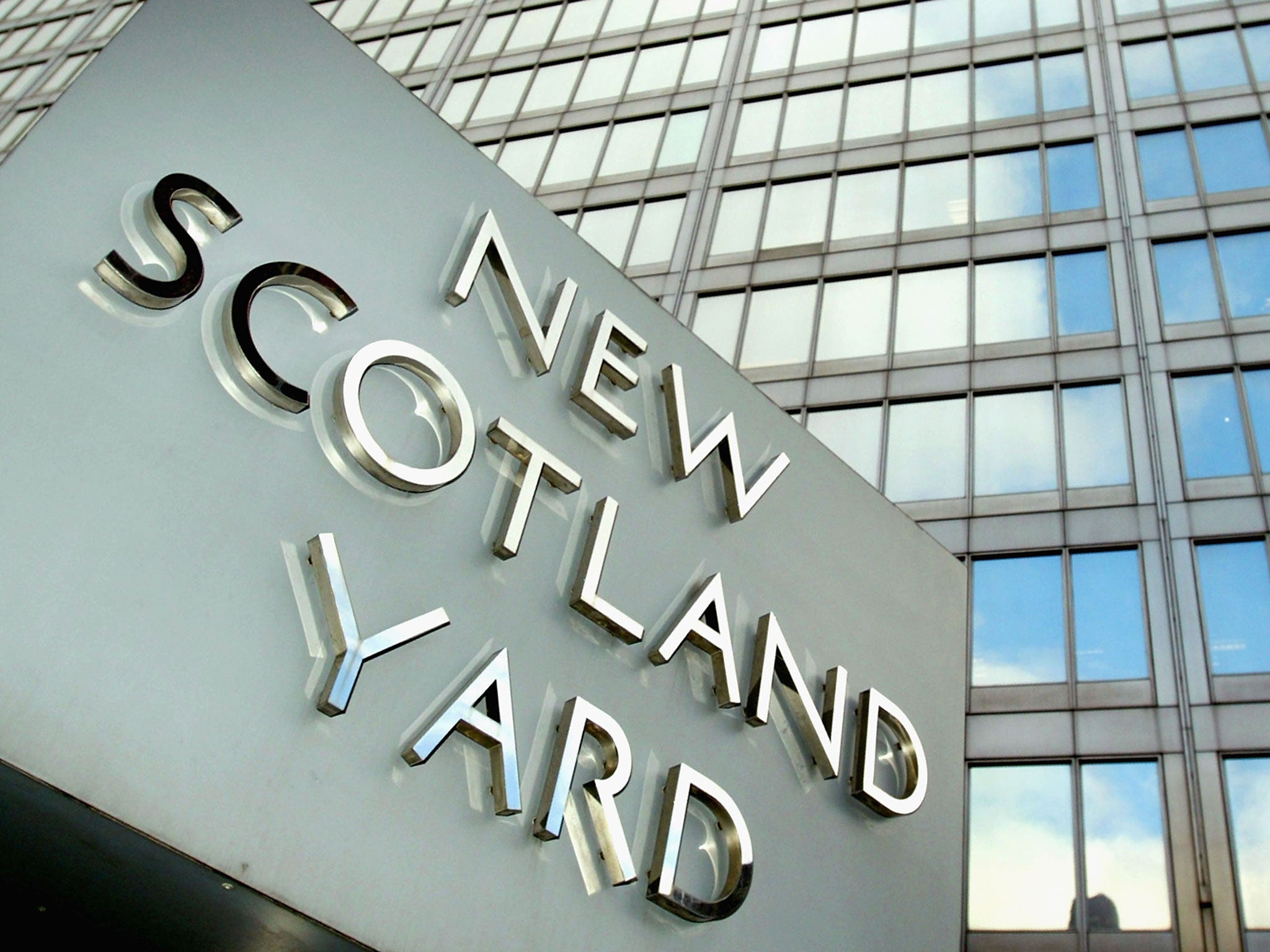The corruption of Britain: UK’s key institutions infiltrated by criminals
Secret report shows how organised crime infiltrated judicial system as well as police with prison service and HM Revenue & Customs also compromised

The entire criminal justice system was infiltrated by organised crime gangs, according to a secret Scotland Yard report leaked to The Independent.
In 2003 Operation Tiberius found that men suspected of being Britain’s most notorious criminals had compromised multiple agencies, including HM Revenue & Customs, the Crown Prosecution Service, the City of London Police and the Prison Service, as well as pillars of the criminal justice system including juries and the legal profession.
The strategic intelligence scoping exercise – “ratified by the most senior management” at the Met – uncovered jurors being bought off or threatened to return not-guilty verdicts; corrupt individuals working for HMRC, both in the UK and overseas; and “get out of jail free cards” being bought for £50,000.
The report states that the infiltration made it almost impossible for police and prosecutors to successfully pursue the organised gangs that police suspected controlled much of the criminal underworld.
The author of Tiberius, which was compiled from intelligence sources including covert police informants, live telephone intercepts, briefings from the security services and thousands of historical files, came to the desperate conclusion: “Quite how much more damage could be done is difficult to imagine.”
The fresh revelations come a day after The Independent revealed that Tiberius had concluded the Metropolitan Police suffered “endemic police corruption” at the time, and that some of Britain’s most dangerous organised crime syndicates were able to infiltrate New Scotland Yard “at will”.
In its conclusions, the report stated: “The true assessment of the damage caused by these corrupt networks is impossible to make at this stage, until further proactive scoping has been undertaken.
“However a statement by an experienced SIO [senior investigating officer] currently attached to SO 1(3) gives some indication of the depth of the problem in east and north-east London: ‘I feel that at the current time I cannot carry out an ethical murder investigation without the fear of it being compromised.’
“The ramifications of this statement are serious and disturbing and provide a snapshot of the current threat to the criminal justice system. Additionally the fact that none of these syndicates have been seriously disrupted over the last five years provides an insight into the effectiveness of their networks.”
In one case identified by Tiberius, a leading criminal was acquitted of importing cannabis after he allegedly “bought” members of the jury hearing his case. A named police officer “was involved in some way or another”, according to the report.
Tiberius also revealed the Met was concerned at the time with a national newspaper story on the ability of the Adams family to escape the law by penetrating the criminal justice system.
In 1998, police appeared to have finally made a breakthrough when Tommy Adams was jailed for more than seven years for importing cannabis.
However, the article cited by Tiberius stated that the “only reason the Adams family had allowed the prosecution to succeed and had not resorted to bribery or intimidation to thwart it, was because the other brothers wanted to teach Tommy a lesson for getting involved in crimes they had not authorised”.
The article concluded: “Witnesses terrified into silence, dodgy jurors, bent lawyers, bent policemen and bent CPS clerks – all are part of the same cancer eating away at justice. A cure for the malady will not be easy to come by. Perhaps we should begin by acknowledging that the patient is sick.”
Tiberius disclosed that the Met interviewed the journalist who wrote the story after the murder of Solly Nahome, a money launderer credited as the “brains” behind the Adams’ criminal empire. The reporter stated one of her journalistic sources on the family was a corrupt police officer but did not disclose who it was.
Another case of corruption beyond the Met, identified by Tiberius, included intelligence of alleged foul play within HMRC, which is supposed to lead the UK’s fight against white-collar crime such as money laundering.
In 2000, according to Tiberius, a key police informant was secretly helping Scotland Yard with an investigation into the importation of £10m of heroin by a Turkish gang in north London.
The deal went wrong, the informant was tortured in a cellar and “an attempt was made to sever his fingers with a pair of garden shears”. His associate was also attacked and had “three fingers chopped off with a machete”.
The henchman Tiberius alleged had committed the assaults was the son of a named Met detective, who repeatedly tried to impede police inquiries into the case, according to Tiberius. He also had a corrupt relationship with a named detective sergeant then based in Marylebone police station who is suspected to have “organised cheque frauds”. Research conducted by The Independent suggests that none of the three men has ever been prosecuted.
The Turkish drug dealer was later convicted and told police he was an HMRC informant. He said he knew of “corrupt contacts within the police” and had a Cyprus-based customs officer as a handler who “took money off him”.
Alastair Morgan, whose brother Daniel was murdered in 1987 before he could expose links between Met officers and organised crime, told The Independent: “Despite all the protestations by police that things have changed since the ‘bad old days’, this doesn’t surprise me in the slightest.
“The police have no desire to tackle this. It would be too damaging to have it all aired in open court. The Met is a highly political organisation.”
Scotland Yard said: “[We] will not tolerate any behaviour by our officers and staff which could damage the trust placed in police by the public. We are determined to pursue corruption in all its forms and with all possible vigour. All such allegations and intelligence are taken extremely seriously.”
Bookmark popover
Removed from bookmarks